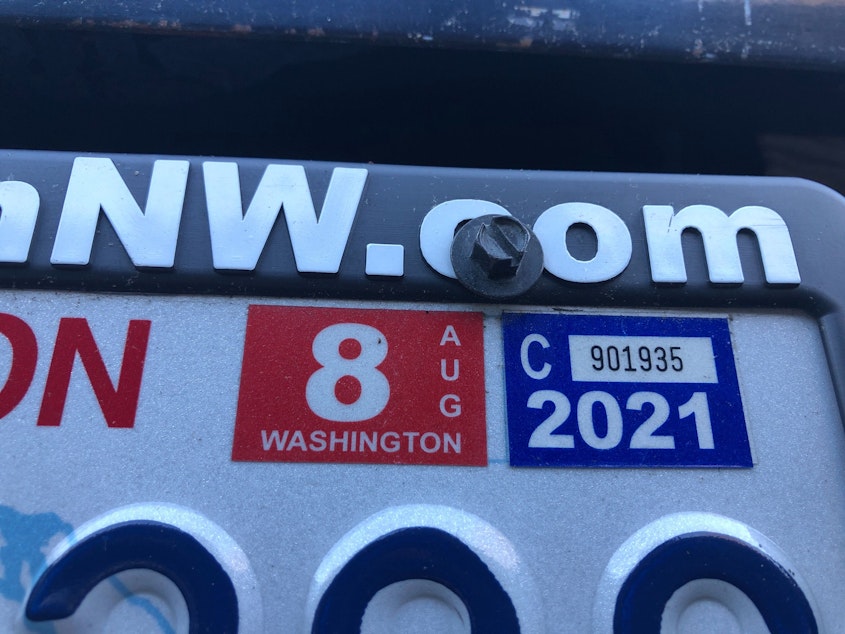$30 Car Tabs Struck Down by Washington Supreme Court

The Supreme Court of the State of Washington struck down the voter-approved $30 car tab initiative Thursday morning, stating it is unconstitutional.
In an opinion written by the court, the $30 car tab initiative violated constitutional rules for passing legislation. Specifically, the court states that the title of the initiative was not "accurately expressed." Also there was more than one subject in the title, when only a single subject is allowed for legislation.
The Supreme Court's decision states:
"The people of our state have the power to propose and approve legislation. WASH. CONST. art. II, § 1. When the people act in their legislative capacity, they are, like any other legislative body, bound by constitutional constraints. Under our constitution, “[n]o bill shall embrace more than one subject, and that shall be expressed in the title.” WASH. CONST. art. II, § 19. Initiative Measure 976 (I-976) contains more than one subject, and its subject is not accurately expressed in its title. Accordingly, it is unconstitutional."
The Supreme Court is now referring the case to a lower trial court to deal with lingering undetermined issues.
Sponsored
The initiative was spearheaded by Tim Eyman who is well-known for his activism and initiative efforts in Washington. Voters across Washington approved Initiative 976 in 2019.. It set car tab fees at a flat $30 and required the state to use Kelley Blue Book to valuate vehicles.
While I-976 passed by 53% across Washington state (a total of 33 out of 39 counties favored it), not all regions voted the same on the initiative. The court notes that it was rejected by 53% of the voters in the Sound Transit region; 60% of King County voters; and 70% of San Juan voters. All are regions that rely heavily on public transportation funds.
After it passed, the initiative was challenged in court by a range of counties, cities, and private individuals -- including the city of Seattle, King County, the Association of Washington Cities, Port of Seattle, the Garfield Transportation Authority, among others.
Plaintiffs argued the reduction in car tab fees would threated public transportation funds, creating massive budget deficits. They also argued that, as it was stated on the ballot, the initiative made it appear as if voter-approved motor vehicle taxes would not be repealed.
"Among many other things, plaintiffs also argued that the ballot title falsely suggested vehicle license registration fees would be reduced to $30.00 when, in fact, the lowest would be $43.25," the court's decision reads.
Sponsored
I-976 originally read: Initiative Measure No. 976 concerns motor vehicle taxes and fees. This measure would repeal, reduce, or remove authority to impose certain vehicle taxes and fees; limit annual motor-vehicle-license fees to $30, except voter-approved charges; and base vehicle taxes on Kelley Blue Book value.
Officials were quick to respond to the court's decision Thursday morning.
Justice for Seattle voters prevailed in today's Supreme Court ruling on I-976. Even before the pandemic and economic crisis, Seattle’s transportation budget was unnecessarily decimated by I-976 last year and our residents and businesses have felt the real impacts of cuts.— Mayor Jenny Durkan (@MayorJenny) October 15, 2020
The City has prevailed! Tim Eyman’s I-976 is officially unconstitutional! Great win today for transit and our environment.— Andrew J. Lewis (@LewisforSeattle) October 15, 2020
WA Supremes struck down I-976, the $30 car tab, which passed overwhelmingly in my district, my County, and WA State. 20 years ago the Court invalidated $30 tabs, and the #legwa immediately enacted tax relief. Today I am introducing a bill to fulfill the will of the people.— Steve O'Ban (@steveoban) October 15, 2020
Sponsored
This story will be updated. Correspondent Austin Jenkins contributed reporting. [Copyright 2020 Northwest News Network]

